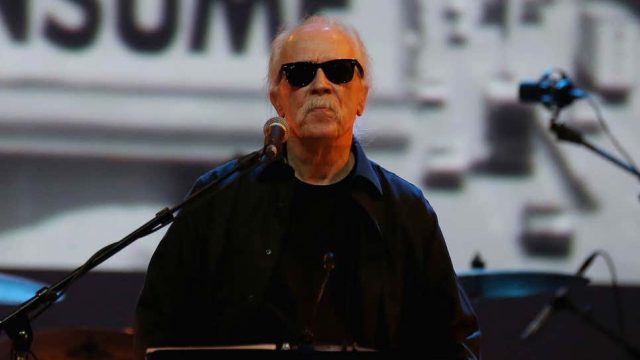This Week You Will Learn:
- How deep love can go in defiance of the will of Twitter
- Which video game kept John Carpenter “out of trouble”
- What a friend of Marlon Riggs recommends out of his Criterion collection
- The secret history of a fallen cultural titan
- The pitfalls of having more capital than understanding of IP rights.
Thanks to the uncringeable scb0212 for contributing this week. Post articles from the past week below for discussion, send articles from the next week to ploughmanplods [at] gmail, and Have a Happy Friday!
In a direct response to a popular(?) FAR entry on “cringe” and articles like it, The Atlantic‘s Yair Rosenberg encourages critics to look beyond their bubbles and engage the culture they’re writing about:
Everyone wants to believe they’re saving the world. Myself included. I noted earlier that I went into journalism rather than film criticism because I felt vaguely embarrassed about pursuing something less socially significant. I suspect some actual critics feel similarly conflicted about their work. Watching movies and television for a living can seem privileged and indulgent compared to other vocations, especially in a world on fire. But once you start treating TV and film as politics, suddenly the project feels far more consequential.
At IDA, Thomas Allen Harris remembers and celebrates Marlon Riggs:
Besides being a friend, Marlon was a mentor and I never missed an opportunity to see him deliver a keynote and participate on panels at the many conferences on media and cultural studies, including the 1991 Black Culture Conference. I, like many others, credit Marlon with providing me with the courage and tools to officially come out at PBS affiliate WNET as queer, as well as leave the corporate trajectory as a staff producer to pursue my artistic work in media. Later Marlon would hire me to film some of his 1991 short, Anthem, also included in the DVD along with his other experimental shorts Je Ne Regret Rein and Affirmations—works that, like Tongues Untied, feature Black queer communities with whom Marlon deeply collaborated and whom he considered his primary audiences. Like him, they are featured in front of his lens, dancing, performing, reading and emoting—engaging in co-creation as a liberatory force and practice.
Here’s that bigass profile on Joss Whedon from Lila Shapiro at Vulture:
“Nobody ever fell from a pedestal into anything but a pit,” Whedon told me on a call one day. A few months had passed since our conversations at his house. In that time, he’d finally made peace with himself, he said. “Could I have done marriage better?” he asked. “Don’t get me started. Could I have been a better showrunner? Absolutely. Should I have been nicer?” He considered the question. Perhaps he could have been calmer, more direct. But would that not have compromised the work? Maybe the problem was he’d been too nice, he said. He’d wanted people to love him, which meant when he was direct, people thought he was harsh. In any case, he’d decided he was done worrying about all that. People had been using “every weaponizable word of the modern era to make it seem like I was an abusive monster,” he said. “I think I’m one of the nicer showrunners that’s ever been.”
Ryan Broderick explains what happens when a group with a decent understanding of NFT purchasing and zero understanding of basic copyright law used 2.5 million Euros to purchase a single copy of Dune, not the rights to produce an animated series as they thought:
As I see it, there are two possibilities here. One, is that a Discord of cryptocurrency investors raised millions of dollars on the shared incorrect belief that owning a book was somehow the same as owning its copyright. It’s possible that at no point did anyone involved realize that Spice DAO, which was organized specifically to buy an unproduced story bible for a Dune adaptation and turn it into an anime, could not achieve that goal in anyway. The other possibility is far more cynical.
But there’s still good news, nerds. John Carpenter says the new Halo Infinite is the best of the series. Kotaku runs down the director’s longtime enthusiasm for gaming:
“My son got me interested in console video games,” said Carpenter. “The first game I remember playing obsessively was Sonic the Hedgehog. Man, it was hard; no checkpoints. I kept dying over and over again. Hand-eye coordination was impaired at the time. Over the years I’ve improved. I have many favorite games. Borderlands 2 is spectacular. I love BioShock, the Dead Space series, The Last of Us…”

